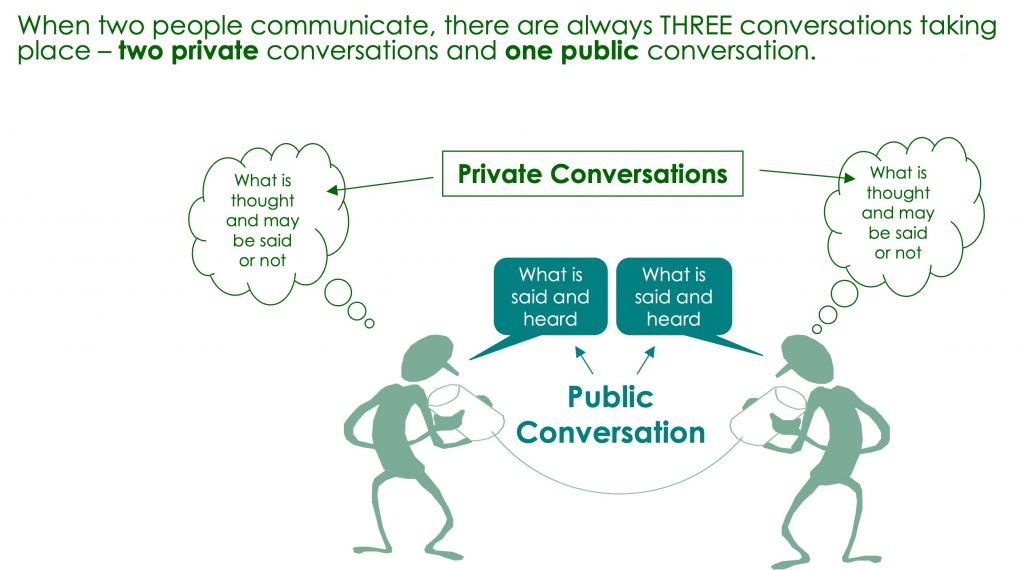
Before exploring conversations in more depth, there is an important distinction to be made between what are termed ‘public conversations’ and ‘private conversations’.
As you would be aware, each of us is in an ongoing conversation with ourselves. This is our ‘private conversation’ and it remains private until we choose to share it with others. The conversation becomes a ‘public conversation’ when we share it with others.
However, we do not share all of our private conversations with others. Generally there are degrees to which we will share out thoughts based on how much we trust those with whom we are having a conversation. The more trust we have in the other, the more we will make our private conversations public. Although we generally don’t make intentional assessments of trust, the nature and depth of our conversations with someone will reveal how we really feel about them. We can seek to enhance our relationship with someone by sharing more of our private conversations but this carries with it a risk.
In this work there are four assessments associated with trust – sincerity, competence, reliability and involvement (care). Sincerity is the assessment of the correlation between another’s public and private conversations. A person is considered insincere if there is seen to be an inconsistency between the two – the greater our assessment of inconsistency, the greater our assessment of insincerity.
The importance of sincerity in our relationship with someone else is that we take action based on our private conversation not our public one. If we do not believe a public conversation matches the private one, then we cannot believe that the person will act as they have indicated and we will consider our relationship in terms of that assessment.
